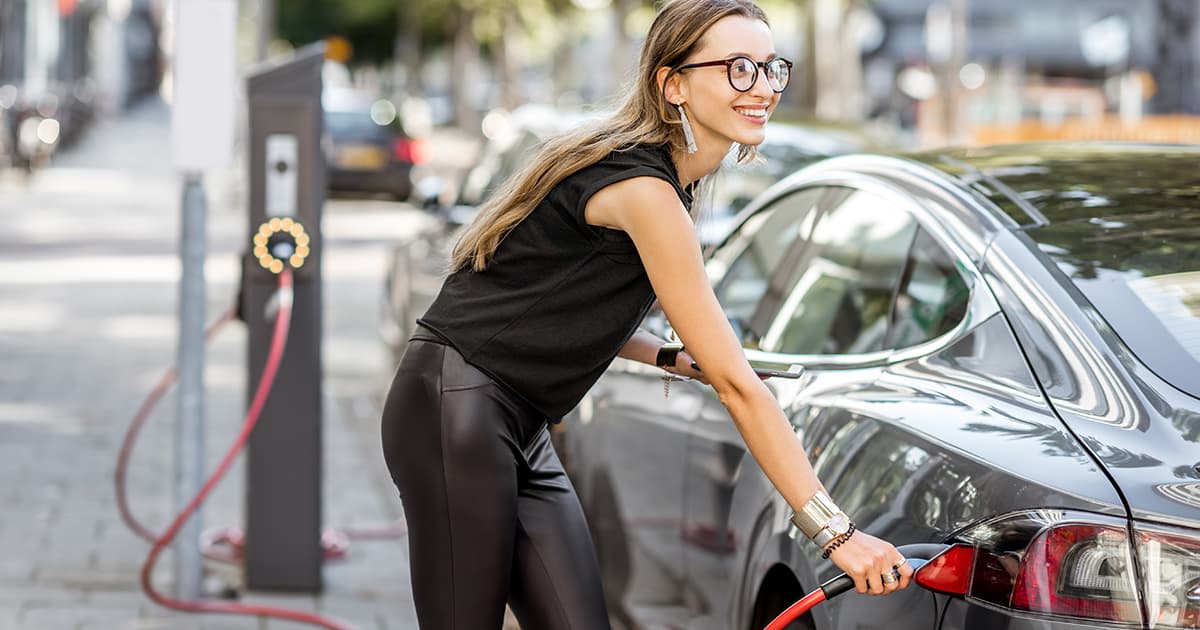5 Tips for Taking Care of Your Electric Car

Having an electric car can help protect the environment and your wallet, but you need to take good care of it.
In some ways electric vehicles (EVs) are easier to care for than gas powered cars. They have fewer fluids, and do not need new spark plugs, or oil or gas filter changes. They do not have multi-speed transmissions or exhaust systems. EVs, though, do require specific care.
Here are 5 key tips to look after your EV
1. Take care of your EV’s battery
The battery is the most important and most expensive component of an EV, so taking care of it is essential and will prolong its life.
- Keep the battery charged between 20% and 80%. Charging it to full too often or letting it get too empty will degrade it quicker. Most electric cars allow you to set when the battery starts charging and how full it gets.
- When you protect them from extreme weather, EV batteries can last up to 15 or 20 years. Avoid parking in the hot sun and park your EV in a garage in the winter. Cold temperatures decrease your battery’s range.
- Only fast-charge the battery when necessary to avoid early degradation.
2. Buy a home charger
Charging your EV at home is generally the most convenient and cost-effective option. Plug-in hybrids can be charged with a standard 120 volt electrical outlet in your home, but an hour only adds about 6 km or range.
Fully electric cars can be charged with a 240 volt charger and will gain about 30-40 km in range per hour of charging. Get in the habit of charging your EV overnight like you do with your cell phone.
There are almost 7,000 public charging stations across Canada and a commercial 400 volt fast charger will charge your battery in under an hour. But this is hard on the battery and having a charger at home is convenient.
3. Maintain your brakes yearly
Regenerative braking systems send energy back to the battery by using motor resistance to slow the car. EVs also have traditional brakes that work in conjunction with the regenerative brakes and these last longer than on gasoline powered vehicles. But rust can build up quickly on regenerative brakes in EVs, and you should have both types looked at annually.
4. Maintain your tires
Buy tires made for EVs because instant torque can be hard on tires. This depends on your driving style, but tires designed for EVs are quieter and more durable. Rotate the tires regularly to reduce wear and keep the tread depth even across all tires.
Also, make sure the air pressure is correct and have them inspected to make sure they are aligned and balanced properly. Proper maintenance can reduce the frequency of tire replacements.
5. Refill fluids
Check your owner’s manual for instructions for maintaining your EV’s fluids. Your EV or hybrid may still have an engine and could require cooling system inspections and oil changes. It probably has a gearbox or gear reduction “transmission” that contains lubricant. Electric motors and high voltage power electronics are normally cooled by a separate cooling system. The battery pack is also cooled, possibly by a coolant circulating system. Also, keep an eye on the windshield wiper and brake fluids.
How do EVs affect car insurance?
Some insurers offer discounts to EV drivers. Your Western car insurance expert will answer any questions you may have about insuring your electric car. Western has car insurance experts across the country. Fill out the online form in one minute or contact us on the phone or in branch to get help with your car insurance journey.



